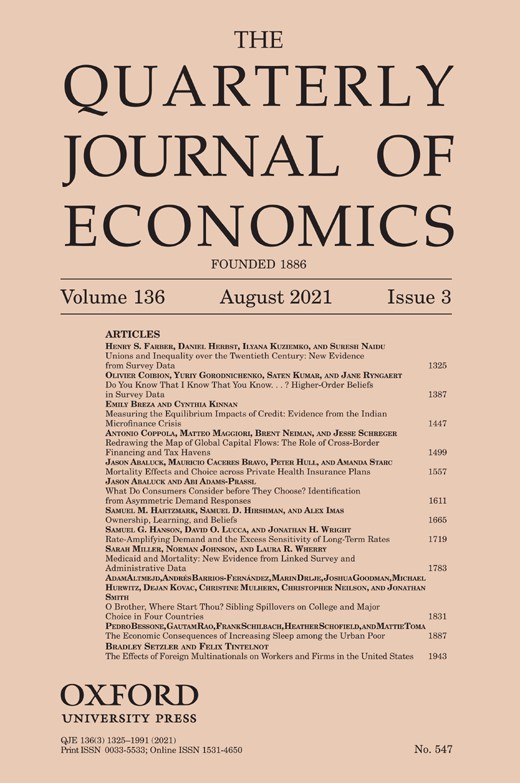-
Views
-
Cite
Cite
Sarah Miller, Norman Johnson, Laura R Wherry, Medicaid and Mortality: New Evidence From Linked Survey and Administrative Data, The Quarterly Journal of Economics, Volume 136, Issue 3, August 2021, Pages 1783–1829, https://doi.org/10.1093/qje/qjab004
Close - Share Icon Share
Abstract
We use large-scale federal survey data linked to administrative death records to investigate the relationship between Medicaid enrollment and mortality. Our analysis compares changes in mortality for near-elderly adults in states with and without Affordable Care Act Medicaid expansions. We identify adults most likely to benefit using survey information on socioeconomic status, citizenship status, and public program participation. We find that prior to the ACA expansions, mortality rates across expansion and nonexpansion states trended similarly, but beginning in the first year of the policy, there were significant reductions in mortality in states that opted to expand relative to nonexpanders. Individuals in expansion states experienced a 0.132 percentage point decline in annual mortality, a 9.4% reduction over the sample mean, as a result of the Medicaid expansions. The effect is driven by a reduction in disease-related deaths and grows over time. A variety of alternative specifications, methods of inference, placebo tests, and sample definitions confirm our main result.



